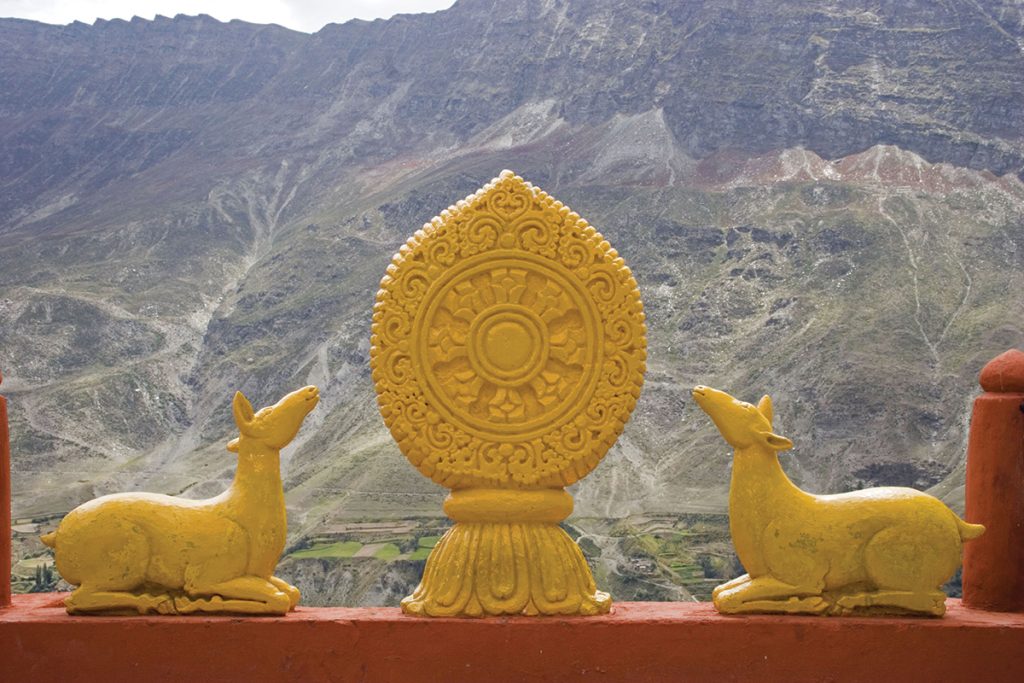The Sanskrit word karma derives from a verbal root meaning “to do” or “to make” and simply means “action.” It is commonly used in English to indicate fate or luck, but these are two things the Buddha specifically says it does not mean. Rather, karma is understood as a natural law that describes the workings of cause and effect. Every action is conditioned by an interdependent set of previous actions, and every action provokes a subsequent cascade of resulting actions. Scientists have mapped out how this works in the material world; the Buddha highlighted its significance in the realm of human psychology.
Related: The Buddha’s Baggage
People act in three ways: with body, speech, and mind. Bodily actions are obvious, and a minor movement, such as pulling a trigger, can have enormous consequences. Speech also can have harmful or healing effects that ripple far and wide. The realization that the mind is always acting, even if the body is still and the voice is quiet, is less familiar—except perhaps to anyone who has sat for some time in a silent meditation hall. The action of the mind is driven by intention (cetana), and this is the key mechanism for understanding karma.
Every moment the mind takes up a different object, as the stream of consciousness flows on (or as the monkey swings from branch to branch). But it also does so with a different intention, attitude, or emotional response toward each object, so there’s also a stream of karma that runs parallel. These intentions are each shaped by what went before, and each shape what will follow. Over time, these gradual influences become dispositions (anusaya), habitual tendencies that develop as the consequence of mental actions.
The cycle repeats endlessly: Disposed to anger or kindness, we feel angry or kind and act it out, and thereby get more disposed to anger or kindness. Which wolf gets fed wins the day.
You inherit “old karma” from previous actions/dispositions, which makes it a gift you receive from a former self (both near and far). But each moment you also create “new karma” as each intention/ action gives rise to a new consequence, so it is also a gift you bequeath a future self. In this way, we are both the heirs of our (past) karma, and the creators of our (future) karma. We cannot choose what happens to us—even in our own minds, as you may have noticed—but we can choose how to respond.
Broadly speaking, our responses can be either helpful, guiding us toward greater understanding, or they can be unhelpful, leading us instead toward suffering. It is not that karma is good or bad, rather crafting it is a skill to be learned. Your fate is in your own hands. Good luck.
Thank you for subscribing to Tricycle! As a nonprofit, we depend on readers like you to keep Buddhist teachings and practices widely available.
